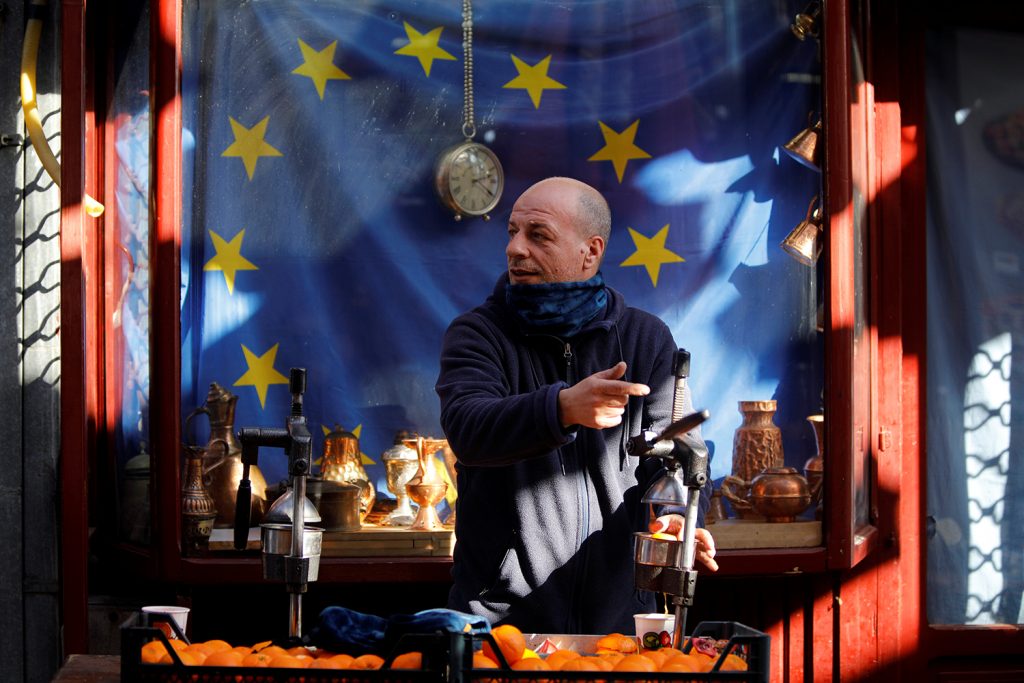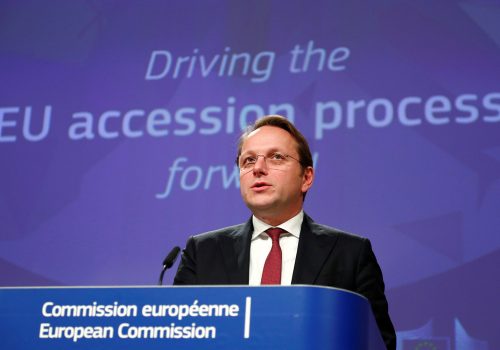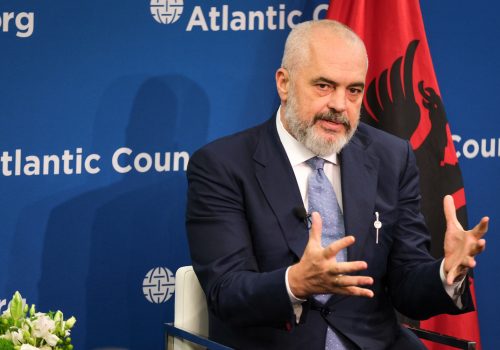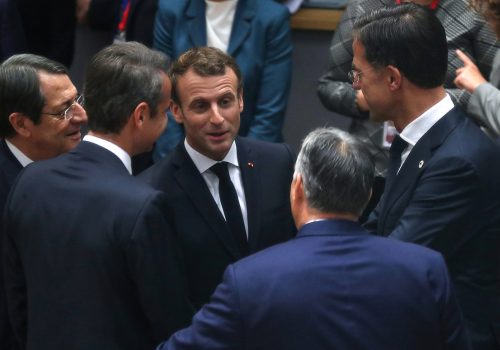NATO membership has finally come through for North Macedonia after a long-awaited vote by the Spanish parliament made the Balkan country the Alliance’s 30th member last week. It’s a step that had been anticipated last year, but Skopje has become accustomed to what Vice President for European Affairs Bujar Osmani calls a “difficult sort of luck.” Nothing has ever come easily for North Macedonia, he explained.
Now, opening negotiations for European Union (EU) membership is also believed to be just a step away for Skopje. Approval by all twenty-seven member governments is expected this week, although the methods of debate and approval have been altered due to the COVID-19 pandemic. A summit of heads of state and government that was originally scheduled for the end of the month has been cancelled.
“We are careful optimists,” Osmani, who is also head of North Macedonia’s delegation for negotiations with the EU, said. “We were and we are absolutely certain we have fulfilled all necessary criteria to start accession negotiations.” That may finally be a bit of an understatement, since Osmani told a press conference last week that he believes approval is finally at hand.
Osmani, who also serves as vice-president of the co-ruling ethnic Albanian party, the Democratic Union for Integration, spoke with Channeling Brussels in late February about the implications of the delays.
The approval was expected last October but France, Denmark, and the Netherlands decided that they did not want to enlarge the bloc under the existing rules, leaving North Macedonia and Albania stranded.
Read more on EU enlargement reform:
Following that disappointment, the European Commission—which had enthusiastically backed both countries—moved quickly to reconfigure enlargement rules, called the “methodology” in EU parlance. The changes included the possibility that membership negotiations could now be suspended if candidate countries backslide on commitments. Due to these adjustments and additional positive reports from the European Commission under the new criteria, the naysayers have reportedly dropped their objections.
The long road was filled with heartbreak for this government, even though the positive decision now will confirm it was the right path.
“There is a story behind this,” Osmani explained, hearkening back to when the administration led by then-Prime Minister Zoran Zaev took office in 2017, having campaigned on a drive for EU membership. Their first visit as a government, he recalled, was to Brussels and the European Commission.
Listen to the full podcast:
“There was an agreement there,” Osmani said. “The agreement was, ‘if you deliver, we will deliver.” He said that phrase became the “fuel in our engine” for the next three years. That is the pledge they sold to citizens who were convinced to make extremely painful changes to the name of their country, the legends in their history, the covers of their passports, and more in the deal named the Prespa Agreement, which settled the long-running name issue with Greece in 2018.
“And when we 100 percent fulfilled our part of the agreement,” Osmani noted, “the EU failed to fulfill its own part.” Deeply disappointed and politically vulnerable, Zaev resigned over the failure, leaving the administration to a caretaker government and calling for early elections on April 12 that have now been postponed due to the coronavirus outbreak.
But the Zaev government isn’t the only side that paid a price in North Macedonia. Osmani said EU credibility and popularity took a hit after the rejection. “People started to reflect whether it was worth it to do all these changes.” While the EU pleaded “enlargement fatigue,” he suggested that North Macedonia had “patience fatigue.”
“People are tired of being stuck,” he explained. “We understand that maybe we are not ready to join the EU tomorrow. We do understand that we need to do reforms. We are a young country; we need to reform ourselves.”
And, though opening accession negotiations still means years of negotiations and reforms, it is at least predictable. The lack of predictability exacerbated by the October rejection had opened what Osmani called a “space” for anti-European forces to try to influence the public. They tried to use the delay to convince people EU membership was never going to happen. “What we want to know is that there is meritocracy, [that] there is a conditionality being respected, that there is a predictability of the process,” he went on. “That if you are doing these reforms, you will move forward.” He noted that, even without having started accession negotiations, Skopje had harmonized thirty percent of the legislation of North Macedonia with EU laws.
But, there was always the belief that these were steps on the way to eventual membership, Osmani said. Without that hope of a better life, he explained, there would have been little incentive for either citizens or politicians to embrace and enact difficult choices, such as the Prespa Agreement.
He said the reverberation of further uncertainty would have gone beyond North Macedonia and Albania: “the message to the region will be that if you are populist, if you are a nationalist, you will stay in power. It’s more pragmatically beneficial for them rather than to do the opposite. And, therefore, this [pro-EU] narrative is important because it’s sending the message to the region and to the leaders in the region that [it’s] time to do reconciliation between nations…though it might be unpopular.”
While there may still be a day or two before written EU conclusions seal the political deal, the government of North Macedonia looks forward to the end of this waiting period and the beginning of the rest of its story. With so much gloom in the world right now, it would be an extremely welcome two weeks in Skopje.
Teri Schultz is a freelance journalist based in Brussels. Follow her on Twitter @terischultz.
Further reading:
Image: A man squeezes fresh orange juice in front of a EU flag at an old Turkish market in Skopje, North Macedonia February 13, 2020. REUTERS/Ognen Teofilovski



